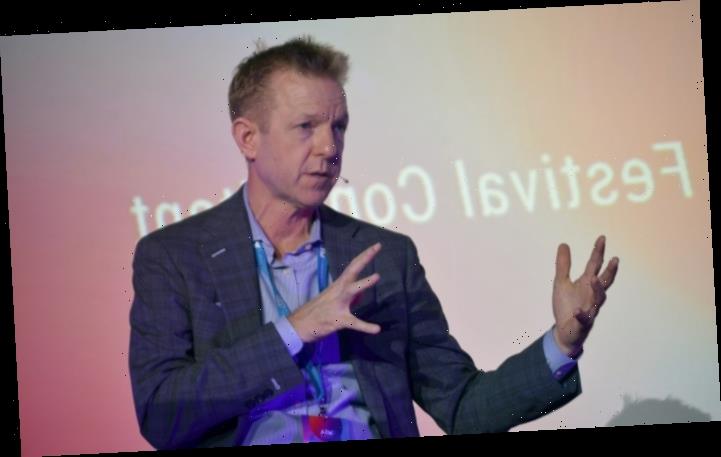ROME – Over the course of two decades in the industry, Lionsgate Television chairman Kevin Beggs has witnessed the ups and downs of a business that has frequently found itself confronting both dizzying new possibilities as well as existential threats. But these days the veteran exec, who oversees the development of all scripted and non-scripted content for the company, is energized by the prospects for what he calls the “platinum era” of television.
“The new streamers coming into the market are obviously bringing a lot of money and changing the business dynamics, but from a pure selling perspective, and getting new content out…it’s really unbelievably exciting,” said Beggs, speaking Friday at the MIA market in Rome.
Beggs entered the TV biz at a time when four broadcast networks dominated primetime viewing. In the years since the industry has undergone seismic shifts, first with the rise of cable television and then the emergence of global streaming services. With a host of new streaming players preparing to enter the market, including Disney Plus, Apple TV+, and NBCUniversal’s Peacock, Beggs said the increased competition had a tremendous upside for Lionsgate’s bottom line. “The business deal gets better,” he said.
But the range of potential buyers across a host of different platforms is also a boon for creators. “From a creative perspective, you’re putting a really good show on the right place where it will thrive,” he said. “In a four-network universe, the show you might wind up making is maybe not the show you pitched….These days you can really arrive at the show you want to make.”
One of the biggest creative benefits has been for young and diverse showrunners who are getting opportunities without being groomed in the traditional TV ecosystem, such as Zander Lehmann, creator of Hulu’s brother-sister relationship series “Casual,” and Justin Simien, who developed his feature film “Dear White People” into a hit Netflix series. “That’s just two people in our little Lionsgate universe,” said Beggs. “That’s being replicated all around. So I think the opportunities are greater than they’ve ever been for new voices.”
Beggs conceded the threats posed by platforms with globe-straddling ambitions, which could potentially “become closed ecosystems in which they’re only buying internally, and independent suppliers of any size are shut out of the process. I think ultimately, that’s bad for quality, because you never know where a hit is coming from.”
However, he also said he was a “glass half-full person” who was more focused on the tremendous upside that increased competition brings. “With a bevy of new buyers, most are buying the best stuff, wherever it’s sourced.”
Lionsgate’s roster in recent years reflects the company’s ability to make the most of those opportunities on both traditional and emerging platforms, including ground-breaking series like “Mad Men” (AMC), “Weeds” (Showtime), and “Orange is the New Black” (Netflix). Its upcoming slate includes the comedy “Mythic Quest: Raven’s Banquet” (Apple TV+), from “It’s Always Sunny in Philadelphia” creators Rob McElhenney and Charlie Day; the musical fantasy dramedy “Zoey’s Extraordinary Playlist” (NBC); and the romantic comedy anthology series “Love Life” (HBO Max), starring and executive produced by Anna Kendrick.
It’s no coincidence that new streaming players like Apple TV+ and HBO Max are part of the company’s portfolio. “As a scrappy, challenger studio…we always thought new buyers are a place where we can really compete. Because legacy buyers have a lot of others business that’s more profitable, and these things become a little bit of a headache for them, instead of an opportunity,” said Beggs, recalling how the deals Lionsgate inked with Showtime and Netflix were seen as risky propositions at the time, but are now considered among the company’s smartest gambits. When new players enter the market, “we’ve tried to be in there first,” he said. “In general, those relationships have paid off.”
Beggs reflected on the dramatic changes he’s witnessed over the course of his career. Long before streaming services signaled the most recent death knell for linear TV, he recalled how broadcast television was under threat from cable when he was starting out at Lionsgate. As the networks floundered in the early aughts, cable was on the upswing. Now streaming services are “taking everybody’s lunch,” he said. But the fundamental key to success remains the ability to adapt with the times.
“Will it all be as profitable as it was before? Probably not. The pie is being spread around in a different way,” he said. “But when networks are in need, as a seller, is when you as a studio should be at your best. Because if there’s a need, maybe you can fill that need. Our job as producers, all of us, is to find a solution for that.”
He continued: “I think they’re all going to be fine, but the business is going to shift, and you have to shift with it.”
Source: Read Full Article
